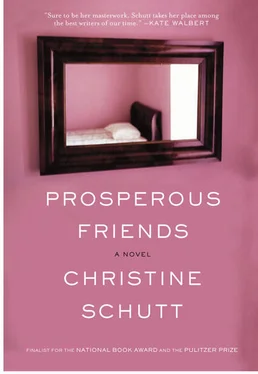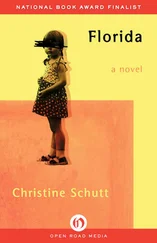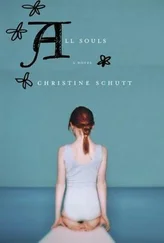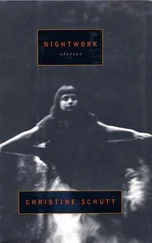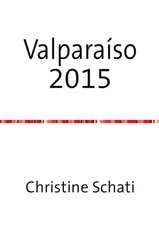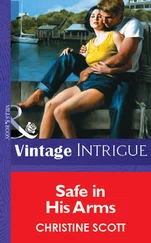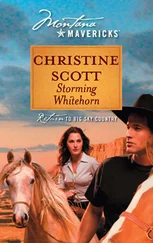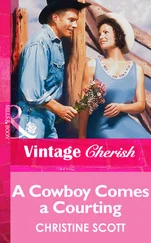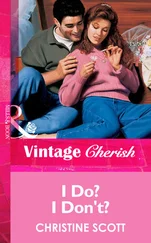Christine Schutt - Prosperous Friends
Здесь есть возможность читать онлайн «Christine Schutt - Prosperous Friends» весь текст электронной книги совершенно бесплатно (целиком полную версию без сокращений). В некоторых случаях можно слушать аудио, скачать через торрент в формате fb2 и присутствует краткое содержание. Год выпуска: 2012, Издательство: Grove Press, Жанр: Современная проза, на английском языке. Описание произведения, (предисловие) а так же отзывы посетителей доступны на портале библиотеки ЛибКат.
- Название:Prosperous Friends
- Автор:
- Издательство:Grove Press
- Жанр:
- Год:2012
- ISBN:нет данных
- Рейтинг книги:5 / 5. Голосов: 1
-
Избранное:Добавить в избранное
- Отзывы:
-
Ваша оценка:
- 100
- 1
- 2
- 3
- 4
- 5
Prosperous Friends: краткое содержание, описание и аннотация
Предлагаем к чтению аннотацию, описание, краткое содержание или предисловие (зависит от того, что написал сам автор книги «Prosperous Friends»). Если вы не нашли необходимую информацию о книге — напишите в комментариях, мы постараемся отыскать её.
Prosperous Friends
Prosperous Friends — читать онлайн бесплатно полную книгу (весь текст) целиком
Ниже представлен текст книги, разбитый по страницам. Система сохранения места последней прочитанной страницы, позволяет с удобством читать онлайн бесплатно книгу «Prosperous Friends», без необходимости каждый раз заново искать на чём Вы остановились. Поставьте закладку, и сможете в любой момент перейти на страницу, на которой закончили чтение.
Интервал:
Закладка:
Easier to lie when not looking at a person; at least, this was Isabel’s experience; it was also easier to speak intimately, to say, “I am more alone than I am used to.” She asked Sally if she would stay, if she would spend the night. By then Sally had turned onto the drive but not without responding, saying, “Well.”
Isabel said, “I’ve got extra nightgowns.”
“Really?” Sally said, sounding skeptical about the nightgowns — their sufficiency? — while at the same time following Isabel into the house and the kitchen. There Isabel set down the polished onions, the carrots, the dusky kale. The leftover tarts slid in their box.
“Would you like one?”
“Later.”
Later was a way of saying yes, and Isabel said she was glad, she was grateful. “You have no idea. Thank you, thank you, thank you,” she said, and they took themselves out to the rough backyard to look at the moon. Sally made herself at home on the bulkhead, and Isabel sat at the back door under the light on a steep granite step. “Somebody must have had a purpose. Doesn’t it look that way?”
“Do you mean the moon,” Sally asked, “or the yard? The field grasses were encouraged, I think.”
“I think so, too,” Isabel said.
“I used to be a not-so-amateur gardener, you know.”
“I didn’t know.”
“I’ve not worked in years,” Sally said. “I have a law degree,” she said. “Can you believe it? Surprises me, too. Law and landscaping, there’s a practical combination. It’s been an awards show of disappointments, but you must know that.”
“Honestly,” Isabel said, “your father didn’t say.” Isabel would not repeat his brusque summation of Sally: my daughter with my first wife, a heartache. He had failed to mention his daughter was attractive, forgetting Sally’s face to speak of her mother’s wrecked beauty. Sally in shadow, flat on her back on the bulkhead, was a still, consolatory shape far from the violent theater beside the door: frenzied insects bashing into the filthy light. Even the cobwebs were black. She lived here, didn’t she, hadn’t she, for more than a few weeks?
Nothing a broom couldn’t fix and she was half inclined.
“Relax,” Sally said. “Come sit next to me.”
A familiar invitation — and welcome although Isabel wondered just how much Sally knew about her, and as she neared, she said, “You know about your father and me, don’t you?” She sat at the bottom of the bulkhead with her back to Sally. She said, “I sat for him when I first got here.”
“Yes,” Sally said.
“And it doesn’t bother you? I mean it was brief — and rather one-sided, but still. . you don’t hate me?”
“You sound like my daughter,” Sally said and she rolled toward Isabel, lifted her rump and brushed off tree slough. Sat, but made herself small — if such were possible — knees pulled up, arms around her legs, hands clasped, Isabel’s posture. Sally said, “I once met someone at an AA meeting in Long Beach, California. We spent a week together and on our last night — I was visiting my dad and Dinah — she told me she knew my dad. She didn’t have to say any more than that.”
Isabel said, “I’m sorry.”
“You know, you could have a rock garden.”
“No,” Isabel said, “I could never.” Not after the snake plant, an impulse purchase she had treated poorly — even contemptuously. In the White Street loft, the snake plant stood in indifferent foyer light. Over time, the poor plant could not be soaked but the water ran through it: Isabel could lift all three, four feet of it — pick up a hempen spike and all of the plant came out of its pot in pot-shaped dirt, dry and compacted.
Isabel asked, “What are you thinking?”
“I don’t know,” Sally said. “If you don’t know what to look for. . you need to know what to look for in a thing that’s dying to know when it’s dead.”
“It wouldn’t be the first time,” Isabel said.
“What else have you killed?”
The shih tzu came to mind — and Isabel flinched to remember him and what she had done. The baby that never was. And G, and — but Clive? Do you want to show your husband what you can do? More than one man had asked. Now Ned had shown her what he could do — no fooling: In the few weeks at the Bridge House he was onto something his agent liked.
“I had begun to think Carol Bane didn’t exist,” Isabel said. “Why is it so hard to picture the people closest to us as succeeding?”
Sally said, “I don’t know.”
Isabel refrained from explaining herself. One day perhaps there would be occasion to describe some jobs she once took — typing Ruth Draper’s letters in Miss Wilsey’s punitively small but respectable apartment on East Sixty-eighth — but not tonight. If there were other nights maybe — probably. She had been a substitute teacher at The Spence School. She still tutored. She had some stories to tell. Also secrets. Some secrets had to do with Ned, and the possibility that he might reappear and want to play again meant she wouldn’t tell: two together sitting smugly, the solidarity of two in the midst of company. Their fantasy life together, crossing on the QE2 —that game — and the invented Lime House in Hampstead, NW3, all experience delivered in such detail that the fictions seemed fact, and the facts? The facts insisted on themselves. They flew economy to London and lived in Golder’s Green in an unnamed, floridly wallpapered, ground-floor flat.
Some happiness to start there, some of it photographed, then perversely put away. In the nameless ground-floor flat in Golder’s Green, Ned and Isabel had pulled their chairs close to the plug-in coals and read and read.
“I’m not one for travel actually, but with Ned, I could go anywhere. I would. I did.”
*
“Oh, God!” Isabel with a lemon under a knife, tea and tarts at midnight, had cut deeply into her finger.
“Run it under cold water.”
“Oh, God!” She saw the blood run off, and she contracted her vaginal muscles as if it might help contain the wound. “Oh. .” The sting of it! The cut! She didn’t like the cold water and she swaddled the finger with paper towels. Meanwhile, Sally was after the first-aid kit under the bathroom sink. She came back with the gauze in hand and took up Isabel’s finger and wrapped it rapidly, efficiently, like a nurse. “I feel dizzy,” Isabel said, and Sally put an arm around her, and led her from the sink to the kitchen chair, sat her down, and finished bandaging.
“I’m taking you to the emergency room at the hospital. It’s not that late and there should be someone on duty. Where are your shoes?”
The gauze had begun to pink already.
“Keep your hand raised,” Sally said. “It’s a deep cut. You may need stitches. This is the kind of thing I would do,” she said.
Isabel found her slippers — only slightly surprised at being barefoot — let herself be led to the car, door opened, legs swung in. “Okay?” Sally said, and Isabel nodded yes, though the gauze had begun to leak, so Sally gave her the kitchen towel she had brought along in case and told Isabel to wrap it around her finger and then her hand. In this way she muffled the bite and tried to subdue the sharp memory of cutting herself. She thought of graver agonies — wounds, burns — incalculable affliction of the sort she read about every day, but the hurt did not abate. The finger was hot and it beat, heartlike hot and sore.
For the rest — the long drive, the parking lot, the waiting room, the frosty windows in ambulatory — Isabel let herself be led. She shut her eyes when the doctor took up the needle to numb the area and then a kind of nothing until she looked down and saw a turbaned finger puppet that grew sharper as it woke but safe. Sally knew her way around hospitals and did the paperwork — check-in, checkout — all the while smiling at Isabel, saying how much she liked being around someone more hapless than herself.
Читать дальшеИнтервал:
Закладка:
Похожие книги на «Prosperous Friends»
Представляем Вашему вниманию похожие книги на «Prosperous Friends» списком для выбора. Мы отобрали схожую по названию и смыслу литературу в надежде предоставить читателям больше вариантов отыскать новые, интересные, ещё непрочитанные произведения.
Обсуждение, отзывы о книге «Prosperous Friends» и просто собственные мнения читателей. Оставьте ваши комментарии, напишите, что Вы думаете о произведении, его смысле или главных героях. Укажите что конкретно понравилось, а что нет, и почему Вы так считаете.
